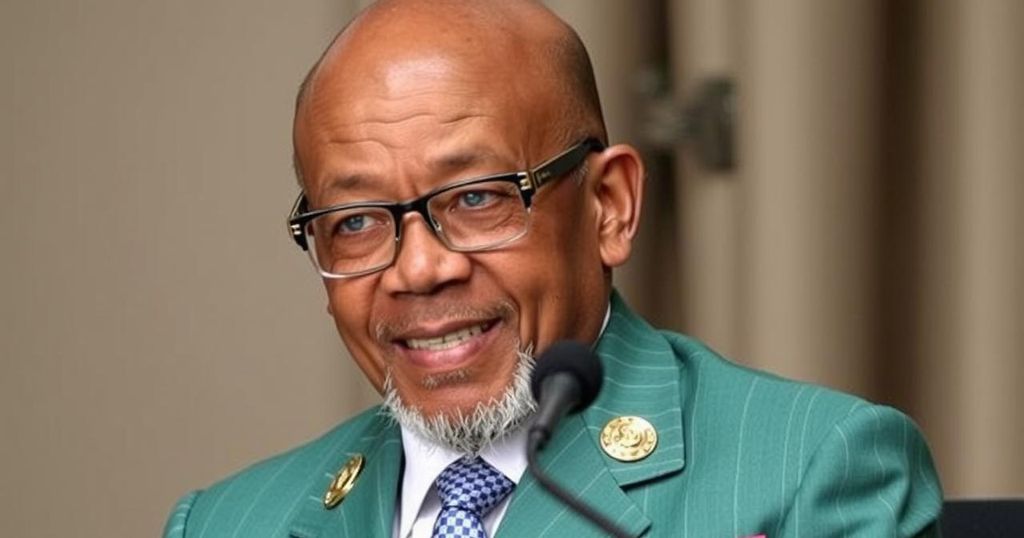Former Suriname President Desi Bouterse Passes Away at 79

Former Suriname president Desi Bouterse died at 79 after a short illness. Known for seizing power in a military coup in 1980, Bouterse’s legacy includes significant political influence, controversial governance, and recent legal troubles related to murder convictions. His death may have profound impacts on Surinamese politics.
Former Suriname president Desi Bouterse has passed away at the age of 79 due to a brief illness, as confirmed by credible sources. His death occurred at a clandestine location and his body has been transported to the capital city of Paramaribo. Although the family has not formally announced his passing, several members of his National Democratic Party (NDP) and close friends have acknowledged the news. Supporters have gathered at the party center in Geyersvlijt to console one another while awaiting official communications regarding his demise.
Bouterse initially seized power through a military coup on February 25, 1980, which deposed the democratically elected government of Henck Arron. His regime was initially met with support from various sectors of society, including left-wing political factions. Bouterse remained the de facto leader until elections were held on November 25, 1987, resulting in a substantial victory for the Front for Democracy and Development led by Arron. Despite this political setback, Bouterse maintained significant influence as commander of the National Army.
A second coup on December 24, 1990, known as the ‘telephone coup,’ further solidified Bouterse’s grip on power following discord with the government led by President Ramsewak Shankar. Eventually, he would experience electoral losses, with Ronald Venetiaan becoming president after the 1991 elections. Nonetheless, the NDP returned to power following shifts in political alliances, ultimately resulting in Bouterse’s election as president in 2010, with a subsequent re-election in 2015.
Bouterse’s political legacy is marred by legal troubles; he and his bodyguard were sentenced to prison for their involvement in the December 8, 1982 murders of 15 individuals, including journalists and military officers. The trial has been a prolonged affair, with Bouterse appealing the conviction handed down in August 2021. He had been placed on an INTERPOL Red Notice list earlier this year as efforts to apprehend him intensified, especially following police raids on his home this week.
In summary, Desi Bouterse’s life was characterized by significant political influence and a controversial history in Suriname. His passing signifies the end of an era in Surinamese politics, reflecting on both his governance and his ongoing legal issues.
Desi Bouterse’s political career began in the military where he orchestrated a coup in 1980 that established his authority in Suriname. He served as president twice but his legacy is heavily tainted by human rights violations and convictions for murder. The political landscape in Suriname has been shaped greatly by his actions, both during and after his rule, affecting political alliances and governance since. His recent legal challenges involving serious crimes, alongside his notable influence in the military and politics, paint a complex portrait of a leader whose actions continue to provoke debate and reflection in his country’s history.
The passing of Desi Bouterse marks a significant moment in Suriname’s political history. His life and leadership were marked by coups, military rule, and serious allegations of human rights abuses. As the National Democratic Party mourns his loss, the implications of his leadership and the controversies surrounding his conduct will likely continue to resonate in Surinamese society for years to come. The future political climate in Suriname will be shaped in part by this complex legacy.
Original Source: www.guardian.co.tt







